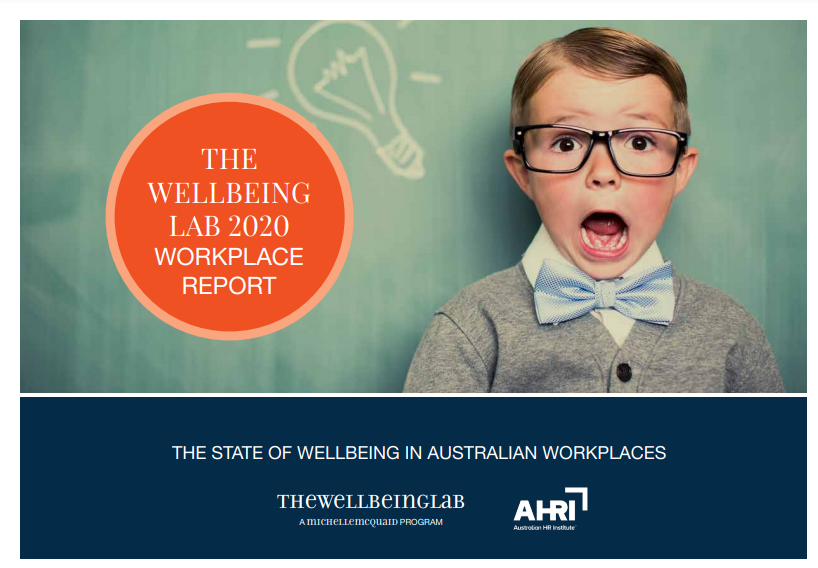The State Of Wellbeing In Australian Workplaces – The Wellbeing Lab

The Wellbeing Lab 2020 Workplace Report studies the employee wellbeing state under the effect of bushfires and COVID-19 in Australian workplaces. Data from this report was collected from more than 1,000 Australian professionals.
Some main findings in this report include:
- Less than 15% of surveyed Australian were thriving consistently during this period, while more than 30% of people reported struggling or didn’t thrive.
- In general, people who are consistently thriving and living well despite struggles are more likely to be satisfied with their jobs or are performing well. Surprisingly, people who performed well in their jobs also reported lower wellbeing quality.
- Male employees seemed to thrive more than their female colleagues as 19% of them reported to consistently thrive while only 10% of female employees claimed the same. However, more female employees have been living well despite struggles than male employees.
- People who are over 55 years old thrive the most during these hard times, followed by people in the age group of 25-34. People aged from 35-44 have the lowest rate of consistently thriving and struggled the most among all age groups during this period.
- Business owners and C-level managers are groups that consistently thrive. Professionals and Technical Experts are groups that are still living well despite the struggles. On the other hand, Customer Service is among the groups that struggled the most.
- Overall, more than 50% of surveyed employee are very confident about managing their wellbeing and are feeling very motivated to do so.
- Overall, people who are consistently thriving are more likely to have confidence and motivation to manage their wellbeing.
- Most employees felt safe to discuss their psychological issues and are able to share their struggles with others.
- People who were felt emotionally safe and included at work are more likely to thrive compared to people who were not comfortable sharing their issues at work.
- A majority of surveyed employees rated Relationships as the most important factor in their wellbeing, followed by Meaning and Accomplishment.
Full report here.